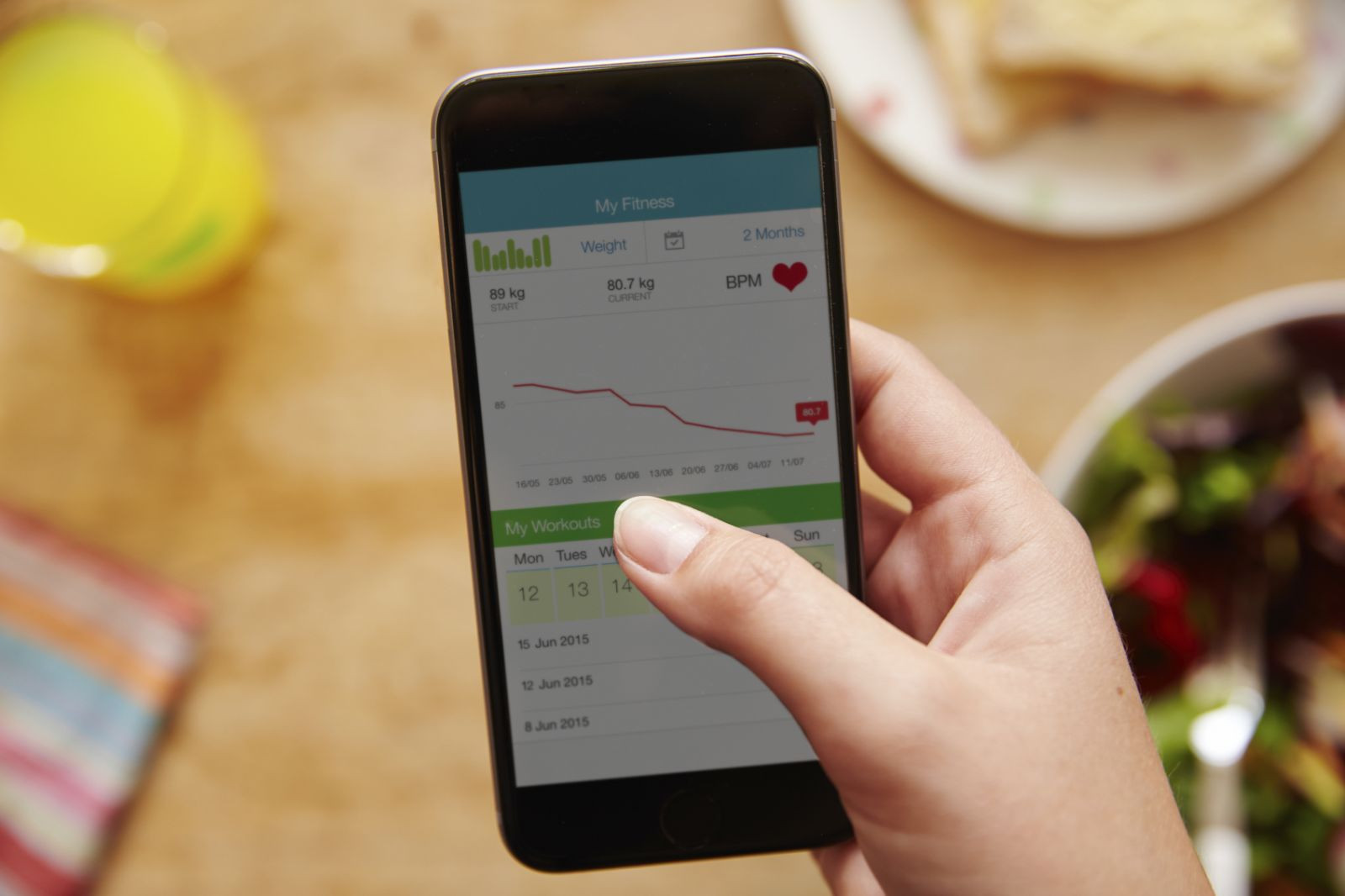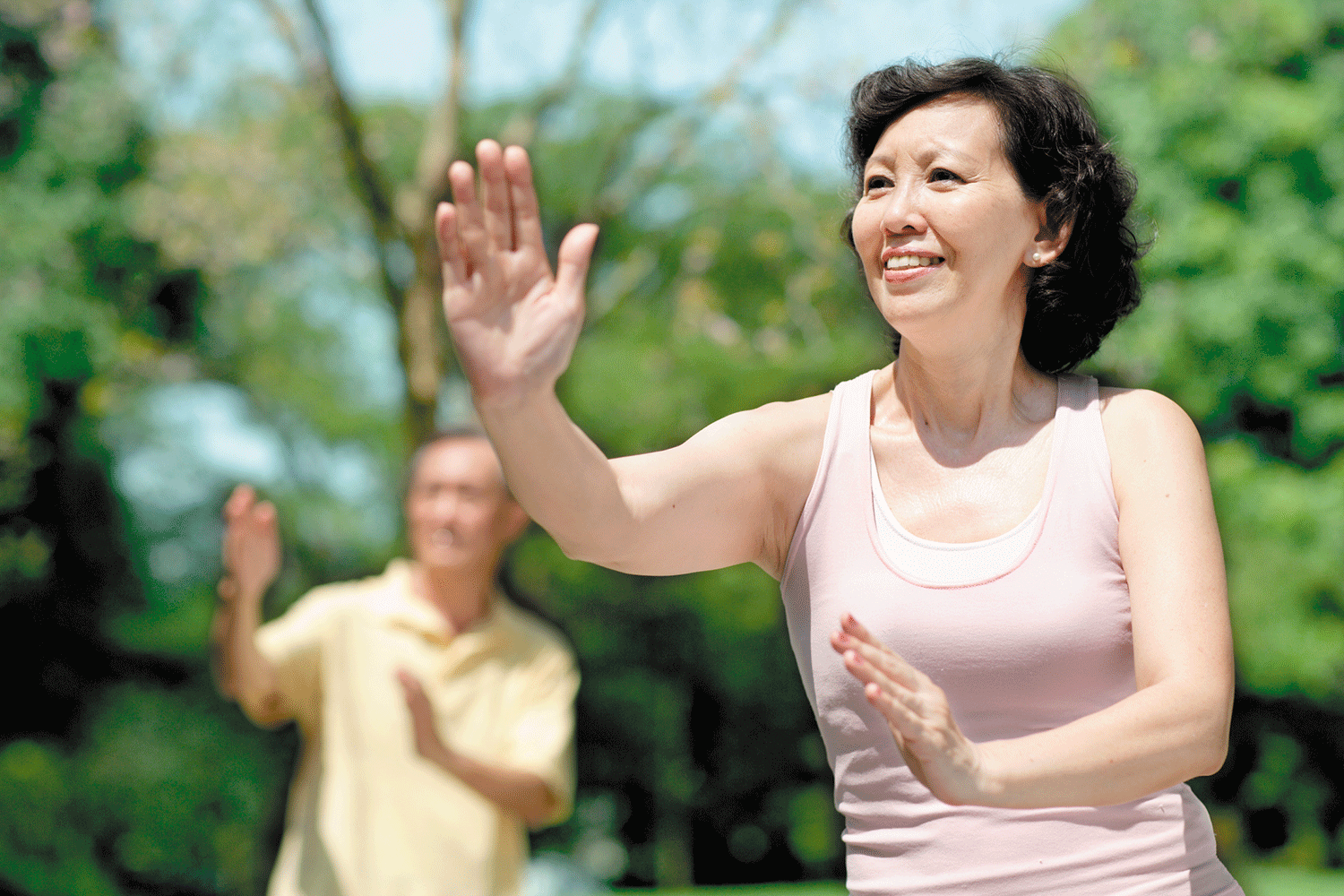Recent Blog Articles

Swimming lessons save lives: What parents should know

Packing your hurricane go bag? Make provisions for your health

5 great tips for sustainable summer living

How health care leaders can prioritize health equity for the LGBTQIA2+ community

One surprising effect of wildfires: Itchy, irritated skin

Orienteering: Great exercise and better thinking skills?

Health care should improve your health, right?

Ultra-processed foods? Just say no

The cicadas are here: How's your appetite?

Life can be challenging: Build your own resilience plan
Exercise & Fitness Archive
Articles
Interval training: A faster route to a stronger heart?
Image: Thinkstock
Short bursts of intense exercise may help build heart fitness. But run the idea by your doctor before you begin.
Want to add some variety to your exercise routine and finish your workout a little faster? Consider interval training, which alternates short, intense bouts of exercise with longer periods of lighter, less vigorous activity. The potential payoff may be enhanced cardiovascular fitness in less time.
Helping your heart: There's an app for that
Image: iStock
Smartphone apps encourage you to take an active role in monitoring and boosting health.
When it comes to healthy hearts, technology is playing a greater role than ever, and not just in the doctor's office. Now nearly anyone can use computer programs designed to improve heart health, thanks to downloadable applications (apps) for smartphones, tablets, and home computers. They're part of a trend known as mobile health or mhealth. "In general, health apps can provide very valuable information, as long as you understand their limitations," says Dr. Randall Zusman, a cardiologist with the Corrigan-Minehan Heart Center at Harvard-affiliated Massachusetts General Hospital and a Harvard Medical School associate professor.
Apps, texts, and sensors for boosting heart health: Do they help?
Image: iStock
Mobile health technologies show some promise for motivating people to make healthy choices for their heart.
The number of health-related apps for mobile devices has exploded in recent years. According to one estimate, online services (mainly iTunes and Google Play) feature more than 165,000 of these downloadable software programs. One in five American adults with a smartphone has at least one of these digital tools, many of which focus on factors related to heart health.
Why you fall-and what you can do about it
Image: Bigstock
Falling has become a major health issue for many older adults, but there is much you can do to reduce your risk.
When we were kids, falling usually meant a skinned knee or a scraped elbow. But with age, taking a tumble can have graver consequences, including hip fractures and traumatic brain injuries. Each year, one in three seniors falls, and one in five of those falls results in a serious injury.
Study suggests tai chi improves life for people with chronic health problems
Image: Thinkstock
Research we're watching
An analysis published online Sept. 17, 2015, by the British Journal of Sports Medicine suggests that doing tai chi enhances the quality of life for people with common chronic conditions.
Researchers analyzed data from 33 studies involving nearly 1,600 adults. Most were in their 60s or 70s, and all had one or more chronic conditions: osteoarthritis, breast cancer, heart failure, or chronic obstructive pulmonary disease (COPD). All 290 participants in the breast cancer studies were women. There were 452 women (85% of participants) in the arthritis studies, 76 (16%) in the heart failure studies, and 92 (19%) in the COPD studies.
What you can gain by exercising longer and harder
New evidence indicates that more frequent and more vigorous activity can turn back the biological clock.
Fifteen minutes of vigorous exercise or 30 minutes of moderate activity several times a week can reduce your risk of cardiovascular disease, obesity, diabetes, cancer, depression, and dementia. But according to recent studies, exercising even more vigorously for longer periods may have additional benefits by taking years off your biological age. It does so by increasing aerobic capacity—the amount of oxygen you can take in and distribute to your tissues in a minute. "Some studies have indicated that people in their 80s who exercised at high intensity for 20 to 45 minutes a day have an aerobic capacity of people 30 years younger," says Dr. J. Andrew Taylor, director of the cardiovascular research laboratory at Harvard-affiliated Spaulding Rehabilitation Network.
How to banish aches and pains
Gentles tretching adds benefit to your fitness routine, but make sure to warm up first. |
A variety of physical activities and regular stretching can rid you of routine discomfort.
In the journals: Even a little daily exercise is good for healthy aging
|
Guidelines recommend 150 minutes a week of moderate exercise, but an estimated 60% of older Americans fall short. Still, even with a relatively low dose of daily exercise, men and women ages 60 and older were at a 22% lower risk of death over 10 years, according to a study in the British Journal of Sports Medicine (BJSM). The study was observational, however, so although it strongly links exercise to longer life, it can't prove that one causes the other.
Marching orders: How to start a walking program
Walking with a friend or spouse may help you stick to your fitness goals. |
This simple activity is one of the best ways to protect your heart.
Injuries are up among older cyclists
|
Take note if you enjoy going for a bike ride for fun and exercise: the number of injuries and hospital admissions among older bicycle riders has made a startling jump. A study described Sept. 1, 2015, in The Journal of the American Medical Association found that from 1998 to 2013, the number of cyclists ages 45 and older seeking treatment for bicycle-related injuries rose 81%, and the number of hospital admissions among the same group was up 66%. Researchers attribute the numbers to an increase in older bike riders, more street accidents, and sport cycling. If you want to go for a ride, remember to wear a helmet to protect your head; make sure your bike is a good fit, with an inch or two of clearance between you and the cross bar; ride in the bike lane, if available; and wear neon and fluorescent colors or clothing made of reflective material, so you'll be visible to drivers.
Recent Blog Articles

Swimming lessons save lives: What parents should know

Packing your hurricane go bag? Make provisions for your health

5 great tips for sustainable summer living

How health care leaders can prioritize health equity for the LGBTQIA2+ community

One surprising effect of wildfires: Itchy, irritated skin

Orienteering: Great exercise and better thinking skills?

Health care should improve your health, right?

Ultra-processed foods? Just say no

The cicadas are here: How's your appetite?

Life can be challenging: Build your own resilience plan
Free Healthbeat Signup
Get the latest in health news delivered to your inbox!
Sign Up











